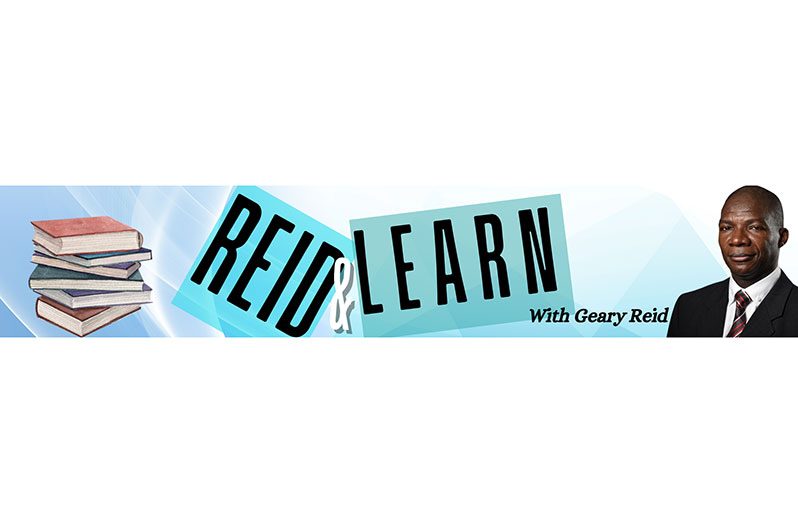DISCOVER how to develop leadership skills that will enable you to have a positive impact on those around you in both personal and professional contexts. Becoming a leader is no easy task, and not everyone is cut out for the demands of a leadership role. With years of experience as a leader both in the corporate world and within the community, author Geary Reid provides insights to help you lead others and cultivate the skills necessary for the job, gain an understanding of what it takes to be a leader, and discover whether leadership is a good fit for you.
1. Point to Destination
Many followers are happy to be in the leader’s care, as they do not have to worry about what they will eat or drink, where to sleep, or how to pay their wages. They often say that this is the leader’s responsibility.
When production is below average and the organisation is not generating enough revenue, followers will not usually have sleepless nights over such matters. They expect the leader to find answers to the organisation’s challenges.
A leader must be willing to point people to a destination. Imagine a ship in the Atlantic Ocean approaching a junction with two routes. Both lead to different destinations. The leader must decide which route to take. The leader must know in advance where they want to go so that when they reach that junction, they can make an informed decision.
The water may look calm at the junction, but the path ahead may not be easy for either destination. When a leader cannot point people to a clear destination, followers become frustrated and may act inconsistently with their role.
Your destination as a leader can be referred to as your intended route or path. From the information provided, you will recognise an intended point to be reached. The leader should consider that destination even before the journey begins (have a clear vision). When this is done, less time is wasted, and confusion among followers is reduced.
A ship without a captain may drift anywhere but not reach its intended destination. A leader may not always know the outcome, but they must hold the intention that followers will accomplish what has been planned. External factors may alter the outcome, but the leader must know the route and keep the followers on it.
Consider a farmer who guides workers to prepare fields. The weather may change unpredictably. Prices may decline. Insects may attack the crops. The farmer cannot control all these factors, but the leader, like the farmer, must constantly work towards ensuring the outcome resembles what was planned.
The leader must keep followers on the same path. While external conditions may change, the leader must remain focused and encourage workers to remain committed to the same destination. When challenges appear, not all followers will agree with the vision, but the leader must keep them informed so they continue working passionately toward it.
2. Upholding Ethics
All employees must uphold ethics. Some may feel that because they are at the lower end of the organisation’s hierarchy, they are exempt. But as the saying goes: “One bad onion spoils the whole barrel.”
It takes only one employee’s unethical behaviour to affect the organisation. For this reason, many organisations provide constant training on ethics to ensure employees meet acceptable standards.
Each leader is expected to embrace ethics. Employees observe how leaders act in certain situations, and based on their response, they decide whether this is a leader they can follow.
Leaders are expected to teach and model ethics. Ethical practice should not be like a suit worn only for certain occasions; it must be a lifestyle demonstrated daily.
People often follow your example rather than your words. Leaders must lead with good examples. The organisation depends not only on the competence of employees but also on their ethical conduct.
The lifestyle of a leader, both on and off the job, is important. With advanced technology and widespread communication, any activity a leader engages in, public or private, may impact their reputation and that of the organisation.
One unethical act can become a talking point and tarnish a leader’s image if shared widely. Many leaders regret mistakes made earlier in their careers, but memories of unethical acts linger.
If you aspire to be a leader, carefully consider where you go, what you say, and how you react. The list of responsibilities is long, and it may deter some from leadership roles.
3. Changing People
Leaders must help people change — never easy, but necessary. Many resist change, but if they continue as they are, they may harm themselves and the organisation. Change may be costly, but the benefits are greater.
The leader must help employees understand why change is necessary. When resistance is strong, immediate solutions may be needed. At times, a firm approach is required; at others, flexibility may prevent confrontation and foster progress.
A leader must decide quickly whether a soft or tough approach is needed. Whenever change is required, communication and motivation are essential. Other skills also come into play, including informing people of the benefits of change.
Not all employees will agree, but if the leader gains enough support, less time will be spent on conflicts and more on progress.
For more information about Geary Reid and his books:
• Amazon: Author Page
• Website: www.reidnlearn.com
• Facebook: Reid n Learn
• Email: info@reidnlearn.com
• Mobile: +592-645-2240



.jpg)








